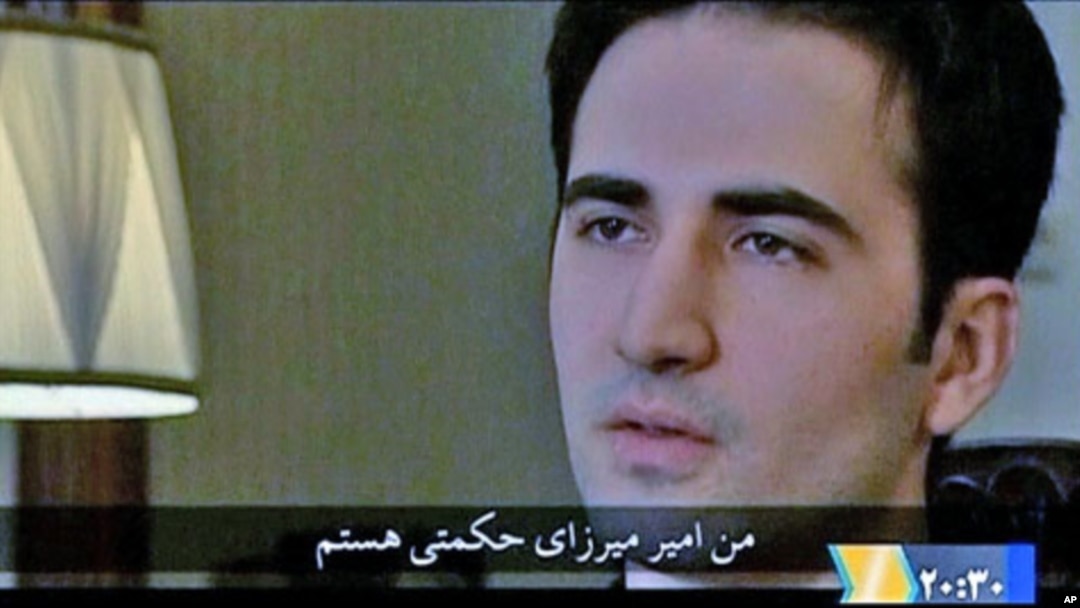Iran announced on Monday it had sentenced a dual U.S.-Iranian citizen to death for spying for the CIA, creating fresh grounds for hostility with Washington at a time when Tehran has responded to new U.S. sanctions with military threats.
Iran's Revolutionary Court announced through Iranian media Monday that Amir Mirzaei Hekmati has been sentenced to death. His crimes: cooperating with a hostile nation, being a member of the CIA and trying to implicate Iran in terrorism.
A former U.S. Marine, the 28-year-old Hekmati was arrested last month.
Hekmati said he received training at U.S. bases in Iraq and Afghanistan before traveling to Iran to carry out his alleged espionage. His family said he was in Iran visiting grandparents.
Last month Iranian TV showed Hekmati appearing to confess his crimes, in a mixture of English and Farsi. Hekmati said he was an American CIA operative sent to infiltrate the Iranian intelligence ministry. He talked of receiving language and espionage training.
The White House on Monday denied that Hekmati was a spy. His sentencing is causing alarm among veteran Iran watchers in the United States.
Mansour Farhang, now an international relations professor at Bennington College in the U.S. state of Vermont, was Iran’s first ambassador to the United Nations after the Iranian revolution:
“There is no such a thing as an independent judiciary in Iran. The judicial decisions in regard to political prisoners are totally and completely politically motivated," said Farhang. "Here is a trial that no journalist has access to, and we don’t even know if Mr. Amir Hekmati had a lawyer defending him. The only evidence to support the regime's claim that Amir Hekmati was a U.S. spy is his confession on television."
Relations between Iran and the West are growing increasingly tense.
Washington fears Iran is pursuing an atomic weapons program. Tehran says its nuclear ambitions are peaceful. The European Union and the U.S. are tightening sanctions on Iranian oil shipments. Iran has responded by threatening to close the straits of Hormuz, the world’s most important oil shipping route.
Given the backdrop, Farhang wonders why Hekmati would visit Iran.
"He took a risk that was really irrational, in my opinion. It is unimaginable for me that such a person would be chosen to do intelligence work. Because the U.S. government knows that any American with dual nationality receiving a visa in Washington and going to Iran would be under constant surveillance," said Farhang.
Hekmati’s execution could still be blocked by Iran’s highest court, which must confirm all death sentences. But Drewery Dyke from the rights group Amnesty International in London isn’t optimistic.
"I think it would be difficult to imagine a greater degree of transparency, a great degree of fairness when there has been such an absence of transparency up to now. From that perspective, we have grave concerns," said Dyke.
The U.S. government, which has demanded Hekmati's immediate release, says it is watching developments.
| Join the conversation on our social journalism site - Middle East Voices. Follow our Middle East reports on Twitter and discuss them on our Facebook page. |


